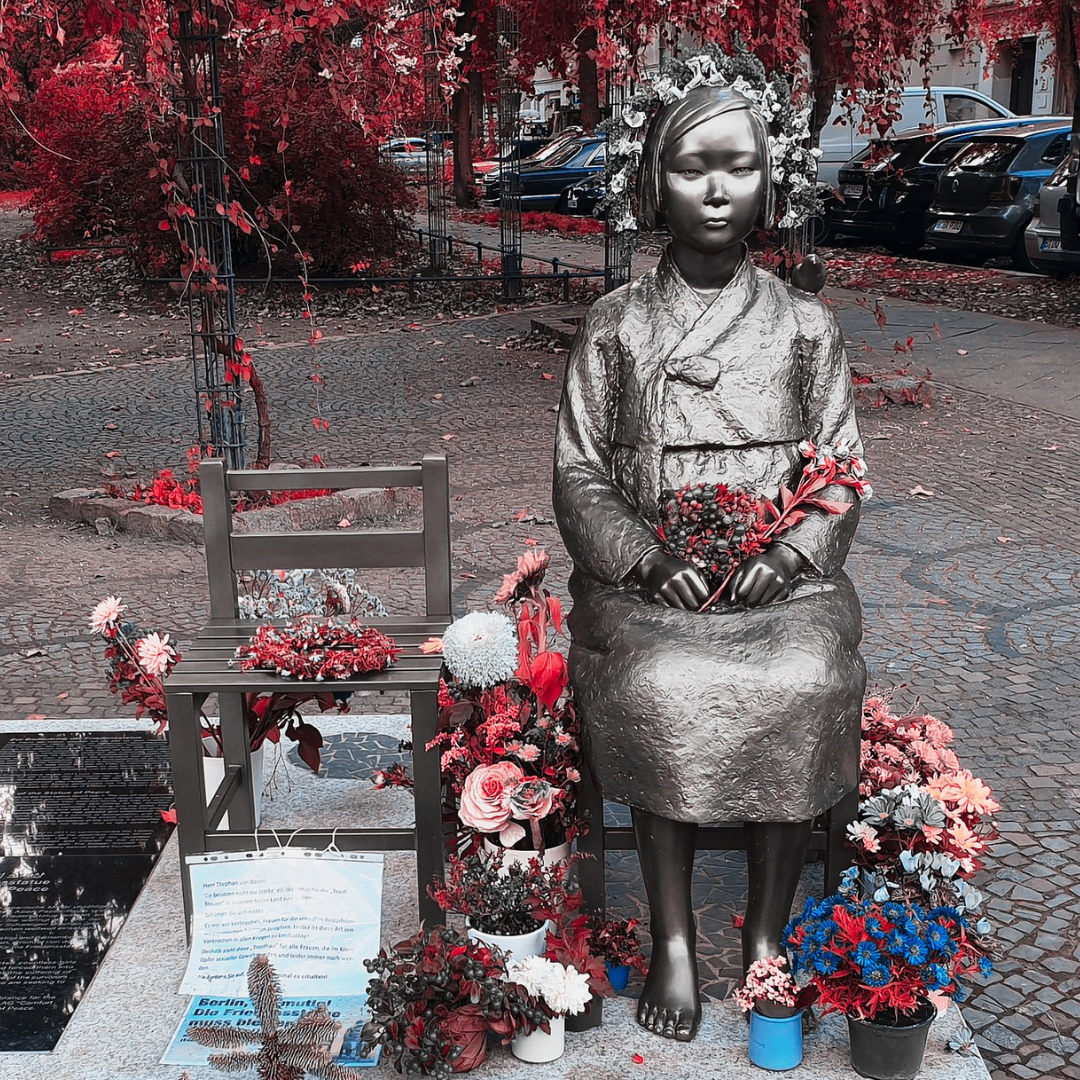

Statue of Peace in Berlin
Germany
By Contested Histories Initiative • May 2021
The ‘Statue of Peace’ in Berlin-Moabit commemorates ‘comfort women’, a euphemism for women who were sexually enslaved by the Imperial Japanese Army during World War II. The memorial urges historical justice and reconciliation. After its unveiling in September 2020, the installation drew criticism from Japanese officials. Although the Berlin-Mitte district… Read More
